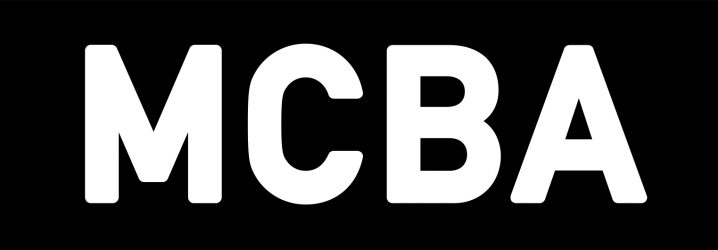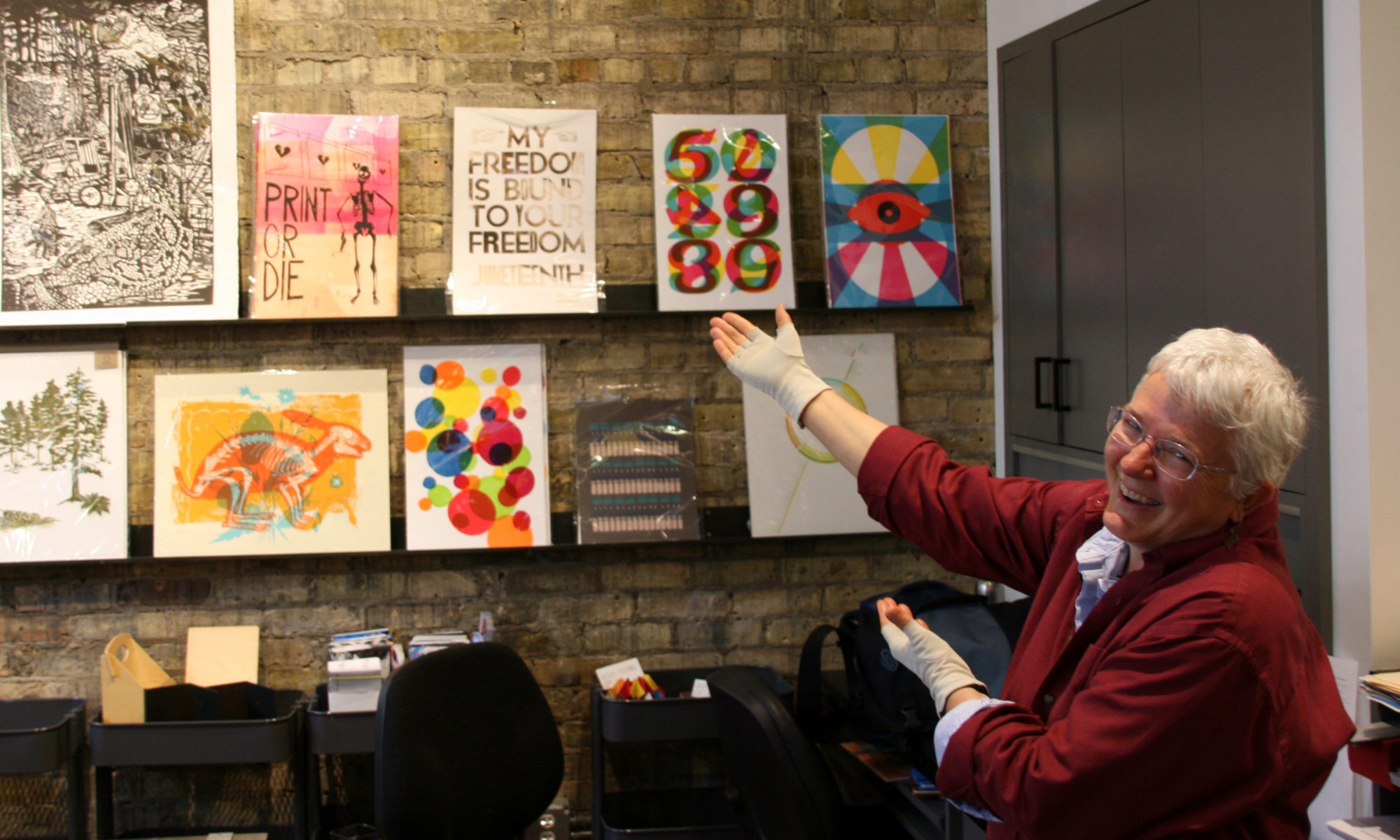Jill Weese has been an integral part of the MCBA community for the past 20 years. Through the many hats she’s worn—as a volunteer, class instructor, Youth and Community Programs Director, and more—Jill has found a way to make an indelible mark on our community! We sat down with Jill to learn a little more about her history with MCBA, the importance of art education, and book arts’ continuing vitality in the greater Twin Cities art world.
How long have you been working at MCBA, and what brought you here?
My relationship with MCBA started in 1998 as a volunteer at the original location in the Warehouse District. I then served as Director of Youth and Community Programs (YCP) for 10 years. Now, I’m semi-retired. I work in The Shop at MCBA, but I’m also faculty. I teach both adults and children here at MCBA and at libraries. Most of my time at MCBA has been dedicated to youth education.
My educational practice has been focused on using book arts as a strategy for helping kids learn. Making books engages students in their own learning. It encourages reluctant learners and empowers students when they see what they can accomplish.
What do you enjoy most about working at MCBA and being part of the community?
The people. There’s a rich, warm, and sharing artistic community here. Since I don’t have formal training in the arts, most of my book arts training has been with MCBA. I’ve been taking classes here for 20 years. There are so many wonderful instructors at MCBA and my interests cover most of the disciplines in book arts. In particular, I will take any historical book structure class from Jana Pullman—she’s such a wealth of information, I’m just a life-long learner! The people here are very generous with their knowledge, and book arts is so broad that there is always something new to learn.
What do you think is special about book art that separates it from other art forms?
The word that comes to mind is “inclusive.” By its very nature, book art is inclusive of many art forms. No one person is specialized in every aspect—whether it’s papermaking, printing, or writing, everyone comes at book art from their own perspective. The work is inclusive and collaborative. You’re constantly working with other people and that’s the fun of it.
Can you think of a specific moment or memory that best captures what it’s like to work at MCBA?
There are too many moments. Last year, when I was on the administrative side of book arts, I was managing a big project for a school. I worked with the YCP teaching artists, explaining what the school wanted and how we could realize their vision. I was acting as a bridge to facilitate the creative process, and each person was a piece of the puzzle. Every MCAB Youth teaching artist individually went to the school and used their expertise to help the educators shine. I really enjoy the collaborative process.
You see how I didn’t mention art there? [Laughs] Some people are an artist first and an educator second. I’m an educator first and an artist second. It just depends on your road map. It’s nice to have that blend in our educational programing.
What do you create as a book artist?
I enjoy making collages, printing, and marbling paper, but mostly I make books. I particularly like sculptural books. I focus on the craft of a finely made book and how to integrate imagery and text into the book structure.
Why is MCBA important?
It’s unique. It’s an entry place for people to be creative, and it’s a supportive place. I like to think about the learning experience that people have when they come through here. When they see the forms that books can take, that they’re not just Eurocentric or case-bound and have a variety of perspectives, people get the sense that they can do these things too. Anything you can do to help people be creative and broaden their perspective is a good thing. Also, people still like to hold books. I believe that working with your hands is important to the human spirit.
This is a place where people can be creative and feel included. It’s a great place. Important. Unique. It adds to the rich fabric of the art community in the Twin Cities.
***
Go here to learn more about The Shop at MCBA.


